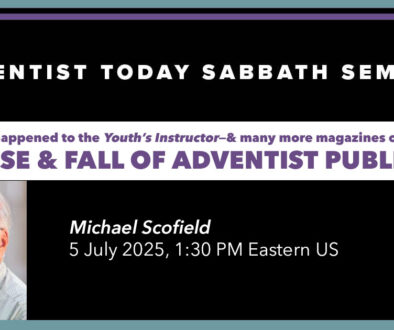Aunty, what’s the Antiochus IV Epiphanes argument all about?
18 July 2022 |
Dear Aunt Sevvy,
Why do Bible scholars argue so much about Antiochus IV Epiphanes and his significance in the prophecies of Daniel?
Signed, History student
Dear Student
This can be answered in ridiculous detail, but here is Aunty’s simple explanation: Antiochus IV Epiphanes was the Greek leader of a Syrian kingdom whose attack on Jerusalem happened near the time when Daniel was written. Many scholars (but not most Adventist ones) think that the prophetic passages in Daniel track closely what Antiochus did in Jerusalem.
Here are some of the details:
The story is recorded in the historical books of the Maccabees, apocryphal accounts that are no longer in Protestant Bibles.
According to the sources, Antiochus was not a nice man: his nickname was Antiochus Epimanes—literally “insane Antiochus.” Unlike his predecessors, he had no respect for the Jews’ autonomy or religion. Many interpreters (though, as Aunty said, not Adventist ones) see Antiochus as “the little horn” in Daniel 7 who “will speak against the Most High and oppress his holy people,” “seek to change times and laws,” and oppress God’s people for “time and times and the dividing of time”—a code for 3½ years (Daniel 7:25).
In Jerusalem Antiochus assassinated the high priest, stole the temple treasures, forbade the worship of Yahweh on pain of death, erected an altar to Zeus in the temple and reportedly had a pig sacrificed there, murdered many Jews and forced others to eat bacon cheeseburgers. Eventually the Maccabean rebellion pushed his army out of Jerusalem—but of course, then the sanctuary needed to be ritually cleansed (Daniel 8:14).
Ironically, it was the Gospel writers, by identifying Jesus with Daniel 7’s “son of man,” who first implied that Daniel’s prophecies were not just about what happened in Daniel’s time, but apocalyptic predictions. Jesus went so far as to say that “the abomination of desolation” was yet to come. In the early years of Christianity the stone of Daniel 2 and the fourth figure in the furnace in Daniel 3 came to be seen as Christ. The fourth kingdom of Daniel 7 became Rome, the “little horn” the Antichrist.
And as all Adventists know, by the time of the Reformation that little horn was thought by some to be the bishop of Rome, aka the pope.
Adventists have mostly rejected the Antiochus explanation. (Des Ford’s affirmation of Antiochus was one of the issues at Glacier View.) Our pioneers pushed these prophecies all the way forward into the 19th century by reinterpreting the 2300 days using a day=year equation, which brought “the cleansing of the sanctuary” all the way up to 1844 CE—which also pushed forward all the prophecies concerning the Antichrist/pope.
But many Bible scholars still hold to the explanation that these prophecies described things that were about to happen nearer to Daniel’s own time—in particular the attack on Jerusalem of “insane Antiochus” in the 200-100 century BCE.
Aunty has no strong opinions about these prophecies. If this stuff turns your crank, more power to you. Get out your calculator and sharpen your pencil and have fun.
Oh, except to give this warning: many Christians through the centuries have tried to predict what God will do in the future by trying to code-break cryptic passages in Daniel and Revelation. Aunty has yet to see any come true, while a lot of things of great import that actually happened (such as World War II and the holocaust and China and the growth of Islam and… and… and…) aren’t found there at all.
So whether any of these prophetic methodologies work or not, Aunty’s feeling is that we are better off to expend our spiritual energy finding peace in salvation through Jesus Christ and trying to cultivate the fruits of the Spirit. As Jesus once said, “Sufficient unto the day is the evil thereof.” Which is why Aunty refuses to spend a single moment prophesying things to be afraid of.
Aunty
 You can write to Aunt Sevvy at DearAuntSevvy@gmail.com. Please keep questions or comments short. What you send us at this address won’t necessarily be, but could be, published—without identifying the writer. Aunt Sevvy writes her own column, and her opinions are not necessarily those of Adventist Today’s editors.
You can write to Aunt Sevvy at DearAuntSevvy@gmail.com. Please keep questions or comments short. What you send us at this address won’t necessarily be, but could be, published—without identifying the writer. Aunt Sevvy writes her own column, and her opinions are not necessarily those of Adventist Today’s editors.
To join this conversation, click/tap here.




